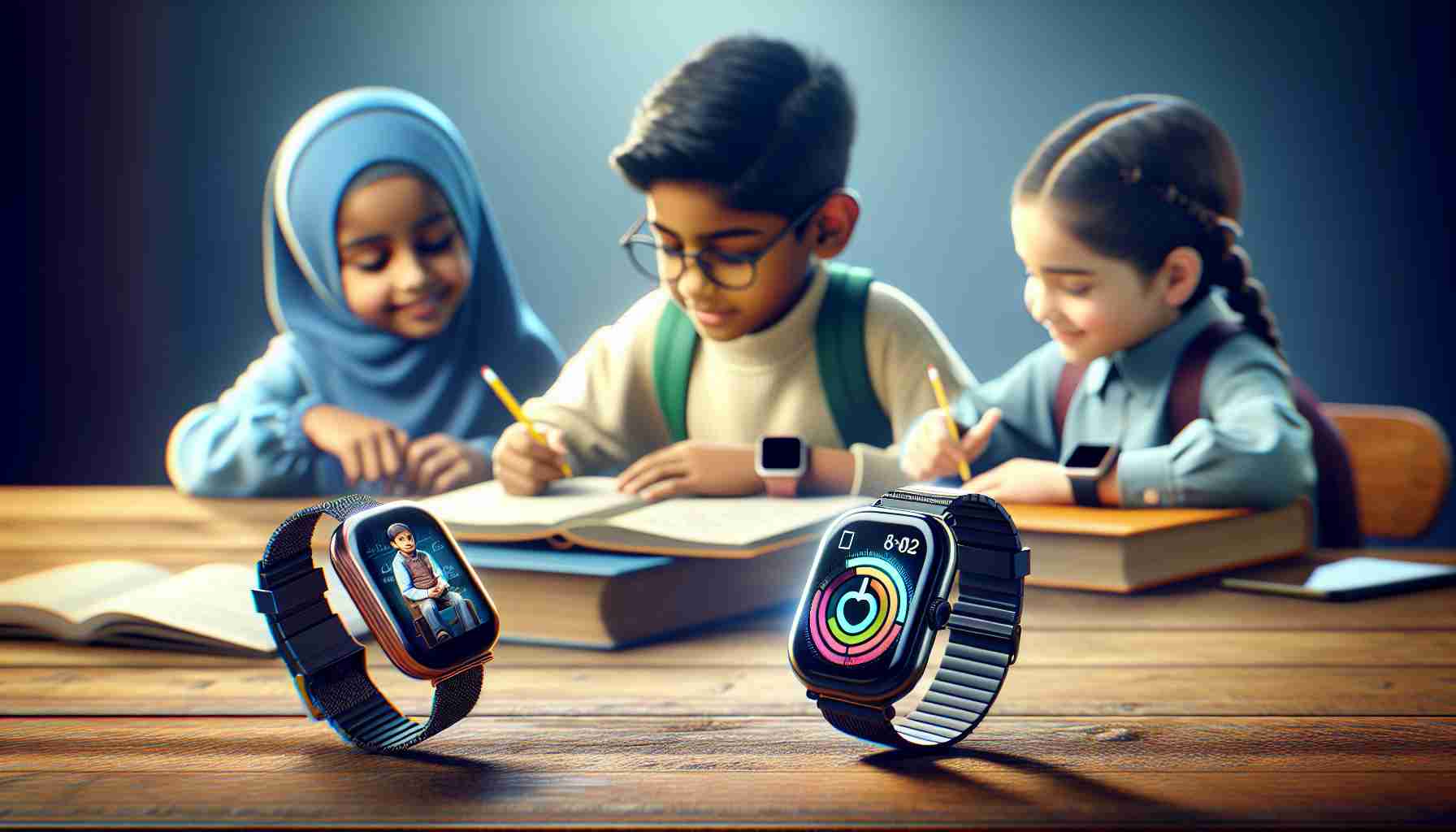Children’s smartwatches are becoming increasingly popular among youngsters, offering features similar to smartphones in a compact form. These devices, once seen as a convenient way for parents to stay in touch with their kids, are now raising concerns about the potential negative effects on children’s health and development.
Gone are the days of simple communication tools; modern children’s smartwatches are packed with games, animations, and short videos that can easily lead kids to become addicted to excessive entertainment. Furthermore, the inclusion of fancy software with membership rewards and gaming incentives can prompt children to engage in spending behaviors, blurring the line between a watch and a mini smartphone.
Manufacturers continuously enhance the functionalities of children’s smartwatches to attract young consumers, turning these devices into de facto smartphones that offer various features like social interactions and gaming. However, the prolonged use of these watches, with their small screens, could potentially harm children’s vision development.
As the market penetration of children’s smartwatches increases, regulators must prioritize monitoring and setting boundaries for these devices. Balancing the need for basic functionality while also recognizing the smart capabilities of these watches is essential to prevent over-commercialization and protect children from excessive consumption.
When considering the impact of over-intelligent electronic products on children, it is crucial to weigh the benefits against the drawbacks. Restrictions on smartphone usage and social media interaction among students have already become a global consensus, with some school districts in the US even implementing bans on smartphone use during school hours to safeguard students’ well-being.
Children’s smartwatches are indeed reshaping how youngsters interact with technology, bridging the gap between convenience and potential risks. Despite the allure of these devices, there are critical questions that need exploration to better understand their implications on children’s upbringing.
Key Questions:
1. How do children’s smartwatches impact cognitive development compared to traditional toys?
2. What are the potential privacy concerns associated with children wearing smartwatches?
3. Are there long-term effects on children’s social skills due to increased screen time with these devices?
4. How do parents navigate setting healthy boundaries around smartwatch usage for their children?
Challenges and Controversies:
– One of the key challenges associated with children’s smartwatches is the potential for overstimulation and reduced physical activity due to the engaging digital content they offer.
– Balancing the educational benefits of smartwatches with the risk of distraction during essential learning moments poses a dilemma for educators and parents.
– Privacy concerns arise with the collection of personal data from children using smartwatches, leading to debates about data protection laws and children’s online safety.
Advantages:
– Children’s smartwatches can enhance safety by enabling location tracking and communication with parents in emergency situations.
– Educational apps and features on smartwatches can supplement traditional learning methods, offering interactive and engaging experiences for children.
– Smartwatches foster independence in children as they learn time management and responsibility through features like reminders and calendars.
Disadvantages:
– Excessive screen time with smartwatches may lead to negative impacts on children’s eyesight and overall physical health.
– The addictive nature of interactive content on smartwatches could hinder children’s social interactions and creativity.
– Children may become overly dependent on smartwatches, diminishing their ability to engage in imaginative play and hands-on activities.
To delve deeper into the impact of children’s smartwatches on growing up, explore resources on child development, technology influence, and digital well-being at HealthyChildren.org.Understanding the evolving landscape of parenting in the digital age is crucial for guiding children towards a balanced and enriching upbringing.























